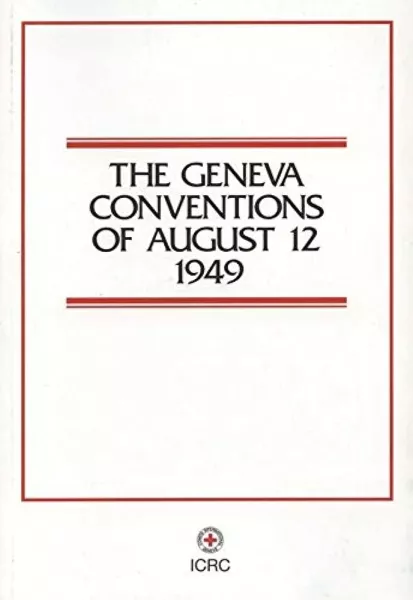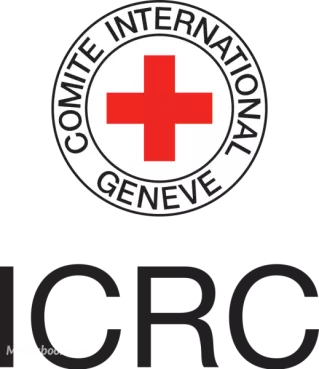
The Geneva Conventions of 12 August 1949
by International Committee of the Red Cross
'The Geneva Conventions of 12 August 1949' Summary
In the annals of human history, moments emerge that redefine the moral fabric of societies, resonating with the essence of compassion and humanity. "The Geneva Conventions of 12 August 1949," meticulously orchestrated by the International Committee of the Red Cross, stands as an unparalleled testament to such moments. This pivotal work encapsulates a story of global unity, resilience, and an unwavering commitment to safeguard the dignity of individuals caught in the throes of armed conflict.
The Geneva Conventions, a culmination of diplomatic negotiations and a shared understanding of the horrors of war, are a series of treaties that constitute the foundation of international humanitarian law. Rooted in the horrors of World War II, the Conventions emerged as a response to the stark realities of the battlefield, where civilian populations and wounded soldiers faced unthinkable suffering. The book delves into the origins of these conventions, illuminating the ardent efforts of the International Committee of the Red Cross and other stakeholders to instill a sense of humanity even in the midst of chaos.
Central to the Conventions is the principle of humanity, which resonates as a clarion call to protect the vulnerable amidst conflict. Through a comprehensive framework, the Conventions outline the rights and protections afforded to wounded combatants, prisoners of war, and civilians. The spirit of empathy permeates the document, reflecting the shared belief that regardless of nationality or allegiance, all individuals possess inherent rights deserving of safeguarding.
As the book unfurls the narrative, it highlights the painstaking negotiations and arduous debates that paved the path to consensus. The Conventions stand as a harmonious blend of legal precision and humanitarian ethos, striking a delicate equilibrium between military necessity and the inviolability of human life. The book poignantly encapsulates the dedication of diplomats, legal experts, and humanitarian advocates who recognized that amid the tumult of warfare, there must be a moral compass to guide actions and mitigate suffering.
In a world often plagued by discord, "The Geneva Conventions of 12 August 1949" emerges as a beacon of hope and a testament to humanity's capacity for compassion. It is a story of nations transcending boundaries to uphold the sanctity of life, a poignant reminder that even in the direst circumstances, empathy can prevail. This seminal work beckons us to recognize our shared responsibility in upholding the principles it espouses, and to weave its essence into the very fabric of our global consciousness. In the end, the book not only narrates the historical trajectory of the Conventions but also inspires a collective aspiration to build a more humane world, one where the dignity of every individual is non-negotiable, even amidst the ravages of conflict.
Book Details
Authors

International Committee of the Red Cross
Switzerland
The International Committee of the Red Cross (ICRC) is an impartial, neutral and independent organization that works to protect the lives and dignity of victims of armed conflict and other situations...
Books by International Committee of the Red CrossDownload eBooks
Unfortunately, no ebooks exist for this book, yet...
Listen/Download Audiobook
- Select Speed
Related books

South African Memories by Lady Sarah Wilson
Lady Sarah Isabella Augusta Wilson was the aunt of Winston Spencer Churchill. In 1899 she became the first woman war correspondent when she was recrui...

The War Workers by E. M. Delafield
The War Workers by E. M. Delafield transports you to the bustling wartime offices of a government supply depot, where a motley crew of women, ranging...

Luchana by Benito Pérez Galdós
Luchana is a novel by Benito Pérez Galdós, the fourth in the third series of his *Episodios Nacionales*. It follows the adventures of Fernando Calpena...

St. Clair's Defeat 1791 by Anonymous
St. Clair's defeat, also known as the Battle of the Wabash, the Battle of Wabash River or the Battle of a Thousand Slain, was a battle fought on 4 Nov...

Catiline Conspiracy and the Jugurthine War by Gaius
The book 'The Catiline Conspiracy and the Jugurthine War' by Gaius Sallust explores two pivotal events in Roman history. It first delves into the Cati...

The History of Company A, Second Illinois Cavalry by Samuel H. Fletcher
The purpose of this sketch is to keep green the memory of that little band of men known as Company A, of the Second Illinois Cavalry, who fought in th...

Combat Lessons Number 1: Rank And File In Combat: What They're Doing, How They Do It by United States Army War College
'Combat Lessons Number 1: Rank and File in Combat' is a collection of firsthand accounts from American soldiers during World War II. Compiled by the U...

Ιστορίαι (Histories) Βιβλίοv 3 (Book 3) by Thucydides
Thucydides' *Histories* is a seminal work of ancient Greek historiography, focusing on the first 20 years of the Peloponnesian War, a devastating conf...

The Roman Triumvirates by Charles Merivale
In this short volume, the British historian, Charles Merivale, describes the long conflict by which the rule of one man replaced the Roman Republic. H...

High Adventure: A Narrative of Air Fighting in France by James Norman Hall
High Adventure A Narrative of Air Fighting in France by James Norman Hall; you will find this book although an exciting narrative has an unpolished fe...
Reviews for The Geneva Conventions of 12 August 1949
No reviews posted or approved, yet...